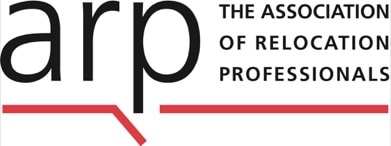For families relocating to France – or considering a move from London to Paris – the French state education system offers a highly structured and academically rigorous pathway that’s both distinctive and, in many cases, free of tuition fees. Below is an overview of how it works, and what international families should know when navigating it.
A nationally standardised system
France’s education system is overseen centrally by the Ministry of Education. Every public school follows the same national curriculum and grading system, ensuring consistency across the country.
In France, students are graded on a 20-point scale across nearly all levels of education—from primary school through lycée and even university—with 10/20 considered a passing mark and higher scores earning distinctions such as assez bien, bien, or très bien. Though some primary schools now use competency-based assessments, the /20 system remains a defining feature of French education.
The school year runs from early September to early July, yet, year placement is determined by calendar year of birth (January–December), not the academic year – an important detail for families arriving mid-cycle.
The school day typically runs from around 8:30 AM to 4:30 PM, with Wednesday afternoons reserved for extracurricular activities or family time.
The structure of French schooling
École Maternelle (Ages 3–6): Preschool in France is compulsory from age three and focuses on socialisation, language development, and early numeracy. It’s divided into three stages — Petite, Moyenne, and Grande Section — and is free within the state system, with families only covering meals and optional activities.
École Élémentaire (Ages 6–11): Primary school covers five years, from CP through CM2. Pupils study French, mathematics, history–geography, science, technology, arts, PE, and civic education. Assessment is continuous, with national evaluations in CP and CE2. Most schools operate Monday to Friday, with a half-day on Wednesdays.
Collège (Ages 11–14): Lower secondary education runs for four years (Sixième to Troisième) and culminates in the Diplôme National du Brevet (DNB). Students study a broad curriculum including two modern languages and are assessed through coursework and final exams. The DNB certifies completion but is not currently a prerequisite for moving on to the next stage – the MofE has announced this to be changed in 2027.
Lycée (Ages 15–18): Upper secondary education – though compulsory only to age 16 – typically continues until 18. Students choose between general, technological, or vocational pathways. The final year concludes with the Baccalauréat, France’s main university entrance qualification.
In Paris, some lycées offer international or bilingual sections, particularly popular with globally mobile families.
Pathways to higher education: CPGE and Parcoursup
Classes Préparatoires aux Grandes Écoles (CPGE): After the Baccalauréat, academically strong students may enter the prépa system — two (sometimes three) years of intensive study within elite lycées, designed to prepare for entrance to France’s prestigious Grandes Écoles. These small, selective classes specialise in science, business, or literature and are unique to the French system. International or private schools do not offer CPGE, making it a defining feature of the public pathway to France’s top universities.
Parcoursup: This is France’s national online platform for university and higher-education applications. Students create a profile, rank up to ten choices, and upload reports and personal statements. Offers are released from late May onwards in a rolling process. Most public universities, CPGE programs, and technical schools use Parcoursup. IB or A-Level students can also apply through it if they wish to study in France.
Everyday life in French schools
Pronote: A hallmark of modern French schooling, Pronote is the digital hub used in most collèges and lycées. Parents and students can check grades, homework, attendance, timetables, and communicate directly with teachers — all in one place.
UNSS (Union Nationale du Sport Scolaire): This national sports federation operates within most public schools, offering affordable extracurricular activities — from football to fencing — typically on Wednesday afternoons. It’s a great way for students to stay active and meet peers across the city.
La Permanence: When students have a free period, they attend la perm — a supervised study hall where they work independently under staff supervision. It’s an ingrained part of the French secondary experience, though it can feel unusual to families used to fully timetabled school days.
Language support for international students
For children arriving in France without fluent French, dedicated language programmes help bridge the gap.
The Français Langue Étrangère (FLE) curriculum supports non-native speakers in developing French proficiency while following the national programme.
In public schools, the formal system is called UPE2A (Unité Pédagogique pour Élèves Allophones Arrivants) — a specialised unit providing intensive French lessons alongside gradual integration into mainstream classes. The goal is to help students adapt both academically and socially.
However, access to these programmes varies. In Paris, UPE2A provision is limited: only around 60 of 645 primary schools and 81 secondary schools currently offer such units (as of 2022). This means placement often depends on availability, and some children may need to attend a school outside their local catchment area to receive support.
Families should therefore check language provision carefully during school enrolment, particularly if arriving mid-year or with older children. If you’re interested in a fully bilingual education, please see our blog here, on the best bilingual schools in Paris
What makes the French state system stand out
Public schools in Paris are non-fee paying and many are highly regarded, with strong academic reputations and routes into France’s elite institutions. Admission is typically determined by catchment area (sectorisation), though a few prestigious lycées draw students from across the country.
For internationally minded families, France’s public system combines structure, affordability, and clear academic progression — while still allowing access to bilingual or international options in Paris and beyond.
Next steps
Whether your family is relocating from London to Paris or simply exploring educational possibilities abroad, the French state system offers a rich, disciplined, and inclusive model that rewards curiosity and hard work. With thoughtful planning – and a clear understanding of the structure – international students can thrive in this distinctive and respected framework. For advice on how to find the best school for your child, and for supported applications, please do contact us.






